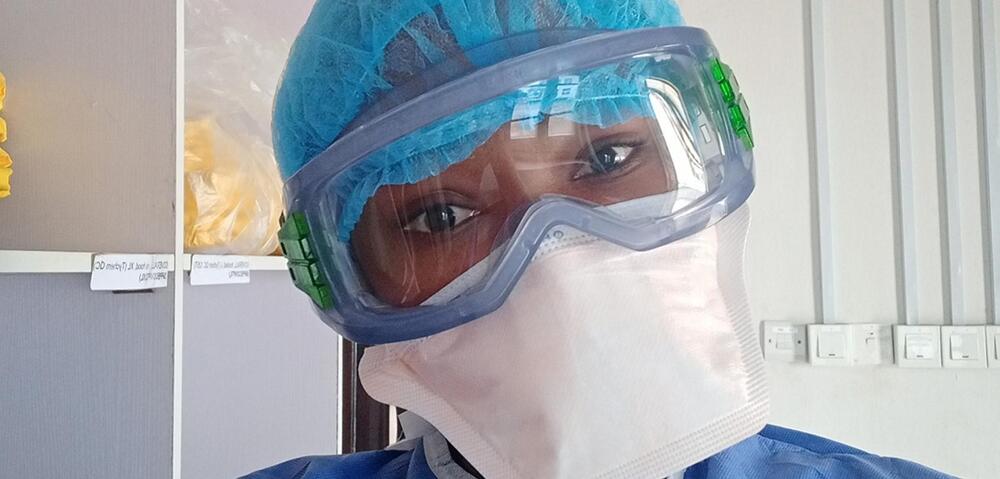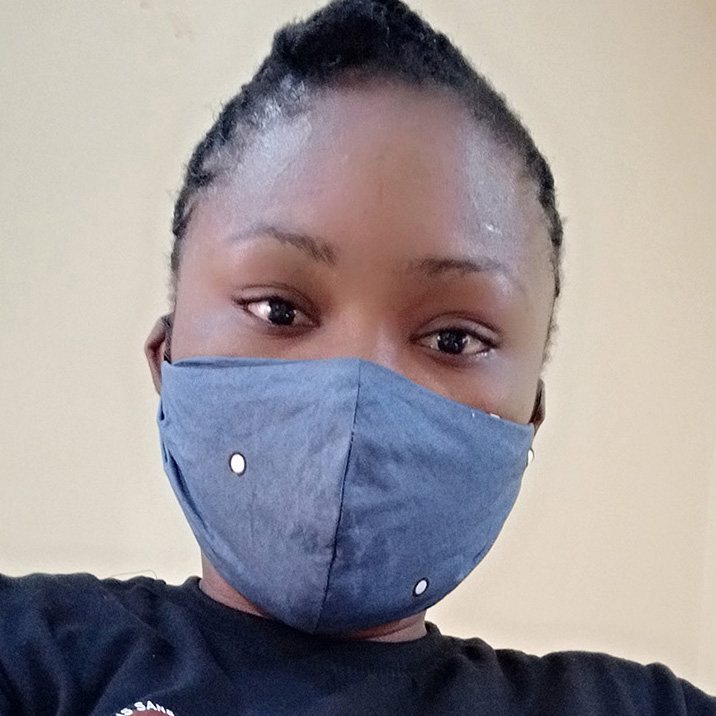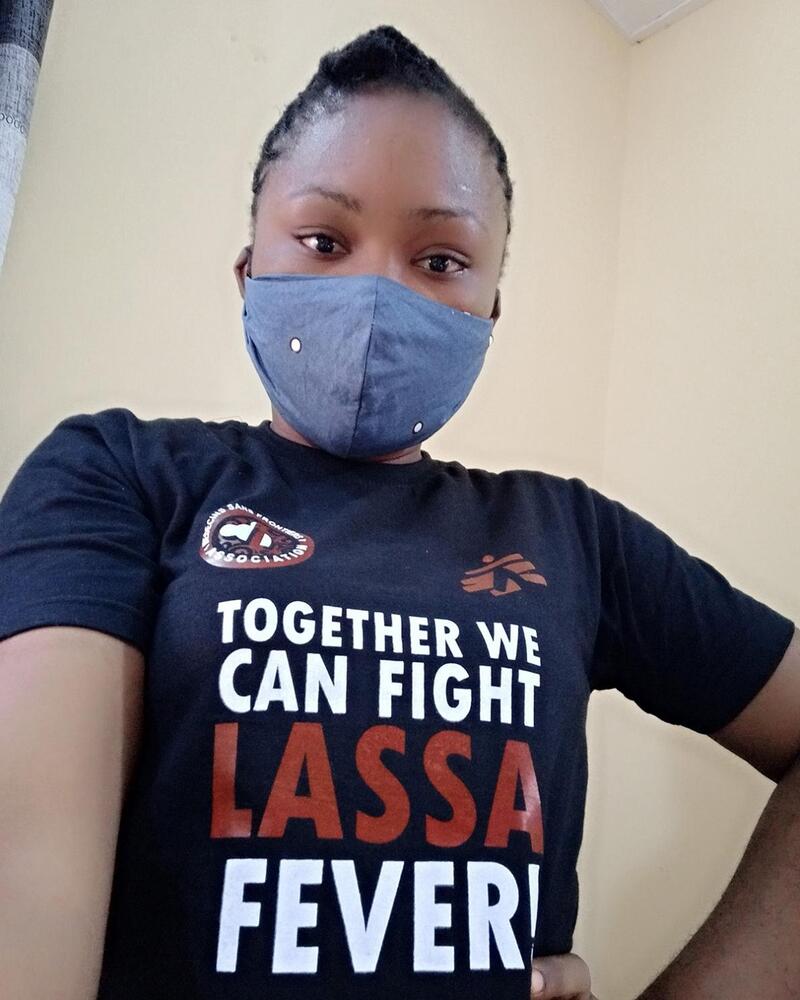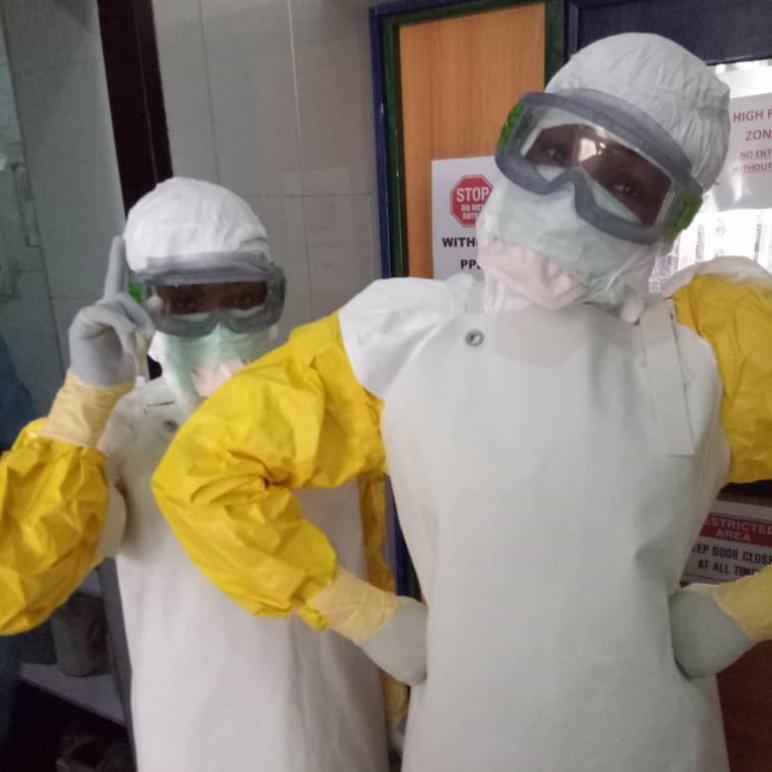Nursing: How I became a life-saving specialist in “everybody’s business”
It was an outbreak of Lassa fever in 2018 that gave nurse Shirley Samson a passion for protecting both her patients and teammates.
Since then, Shirley has become a specialist in infection prevention and control – working through multiple emergencies, supply shortages and a pandemic. From a project in Nigeria’s Ebonyi State, she shares her story.
I first joined Médecins Sans Frontières / Doctors Without Borders (MSF) on a short-term contract in 2019. The team needed support to care for patients during the peak season for Lassa fever, which is a serious viral haemorrhagic disease.
The year before, in 2018, there was a huge outbreak of Lassa fever in this part of Nigeria. Many healthcare workers didn’t have access to appropriate personal protective equipment (PPE) and were risking their lives to take care of patients. Some died in the course of their service.
“My patients had basically everything they needed. It made me really, really happy.”
MSF set up a project to respond to this rolling crisis. But, when I was offered a temporary job here in 2019, I was sceptical about working in the treatment centre. I knew what had happened the year before.
However, on my first day, I saw that I had everything I needed to keep myself safe: the scrubs, the boots, the surgical gowns, the coveralls, the masks, the respirators, goggles.
I said to myself: "For the fact that I’m going to stay protected, nothing is going to stop me from giving care to these people that are sick."
A different kind of battleground
In my previous jobs, I always felt I was in a tight corner. I had never worked anywhere where healthcare was provided free of charge. Instead, patients and their families have to pay for treatment. And, when they don't bring the money, you don't treat them.
As a nurse, this means you have two options: spend your own money to take care of them or watch them suffer.
But for those four months at MSF’s Lassa fever project, I was able to do everything I wanted for my patients. I had personal protective equipment. I had access to medication. If I saw my patient was wearing a long face, I could talk to them about our mental health services and give them our counsellors’ support.
My patients had basically everything they needed. It made me really, really happy.
But, in April 2019 when the peak season ended, our short-term contracts ended with it. At that point, I made a decision… this was the only kind of nursing job I wanted: one where my patients don't have to suffer because they don't have money.
The passion was just ignited in me.
I started looking for jobs with MSF: any adverts I saw, I applied. I even applied to be a cleaner. That was how much I wanted to be part of MSF.
At last, I got a nursing job in northern Nigeria at an MSF hospital for people displaced by conflict.
Although it was a different kind of battleground, my experience with Lassa fever had developed a deep consciousness of ‘infection control’ in me – I had seen how it could save lives and I wanted to learn more.
I started doing online courses. If any organisation started providing infection prevention and control training, I would take part. I really loved this branch of medicine.
In February 2019, I applied for the role of infection prevention and control supervisor back in the Lassa Fever project, where my MSF journey had started…
I got the job.
Stopping infections
In our project, MSF health promotion teams are out in the community sharing information about how people can avoid Lassa fever. Meanwhile, I work to ensure that the virus doesn’t spread within the hospital itself.
There’s not enough research into Lassa fever, which means that diagnosis is still difficult and the treatments we have are adapted from other viruses. To me, this means that preventing infections is even more important.
“It's one thing to treat infection but it's another thing to prevent it. If it is preventable, then that’s what I will try to do.”
I put things in place to prevent accidental exposure among the team, and, if a staff member gets exposed, then I also ensure they are monitored and get post-exposure treatment if needed
Since MSF’s intervention in the crisis in 2019, not a single staff member has died from Lassa fever here.
We make sure that everyone who works at the centre is trained and retrained and trained again. I ensure that cleaning and decontamination procedures are up to standard and that PPE is available.
Sometimes I feel like a police officer, trying to prevent the misuse of PPE, but it’s my responsibility to see that we don’t run out – especially when there are shortages. The availability, the cost of purchasing it, the time it takes for the shipment, for clearing it through customs… it all means that we can’t afford to waste a thing.
Everybody’s business
In 2020, just as soon as the peak season for Lassa fever ended, COVID-19 came up.
We responded immediately and started supporting the COVID-19 treatment centres. And, when there are outbreaks of other infectious diseases in the region, like cholera, yellow fever, acute watery diarrhoea, our teams are there, also.
I love my job.
I have a laboratory. I have a laundry. I have the central sterilisation unit. I work with the medical team, the health promotion team, the environmental health team, the construction team. I’m in everybody's business.
It's one thing to treat infection but it's another thing to prevent it. If it is preventable, then that’s what I will try to do.
Could you be an MSF nurse?
Working with us as a nurse is demanding and rewarding.
From basic healthcare to helping set up health posts, nurses are vital to the work of MSF in projects across the planet. In many situations, they are the backbone of our medical operations.



